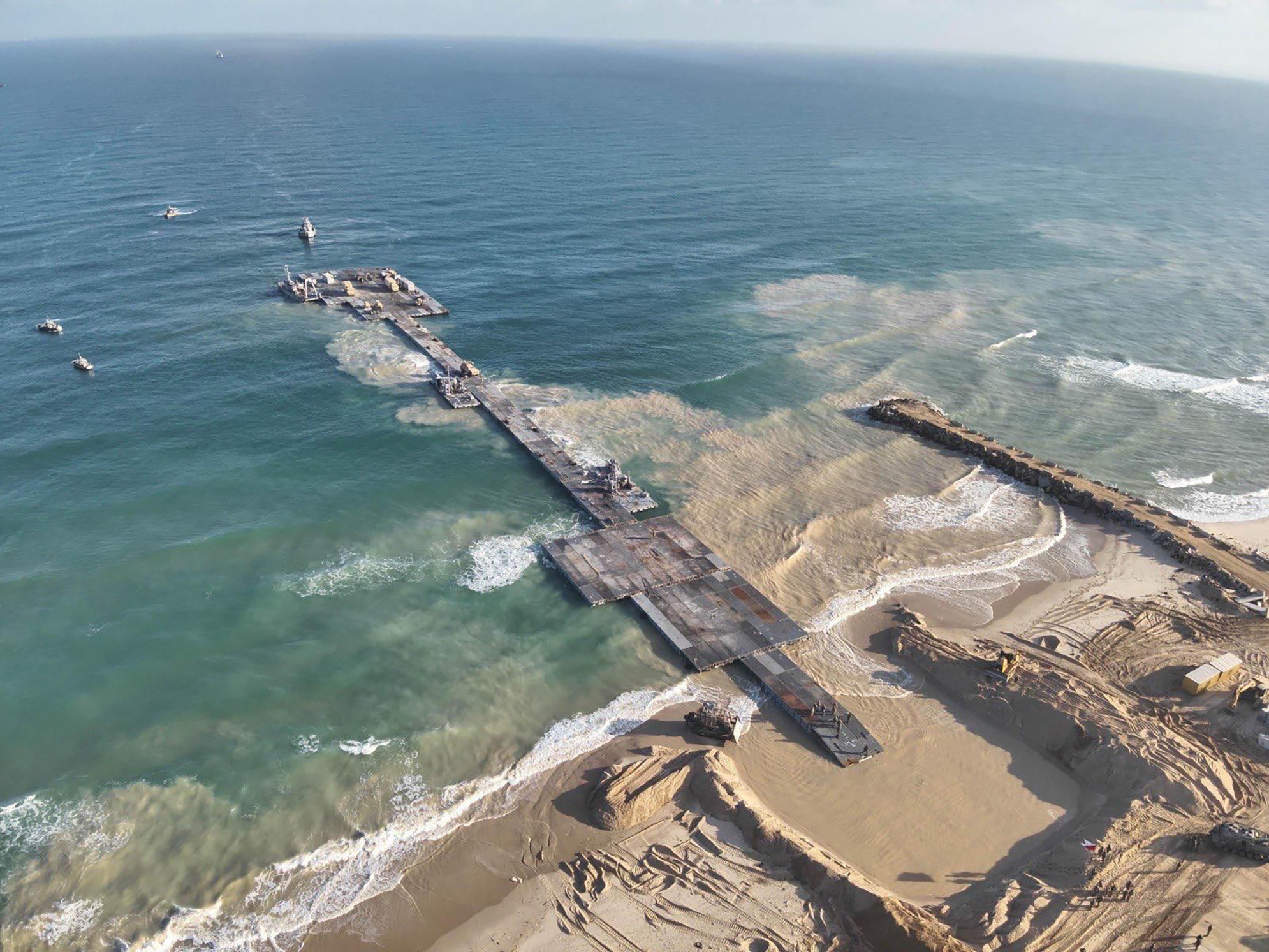The temporary jetty facilitating the delivery of humanitarian aid from Cyprus into Gaza is being reattached after undergoing repairs, the Israeli Defence Forces said on Saturday.
They said they have begun “securing the coastal area” of the jetty and added that the jetty’s re-establishment will “allow for the continued delivery of humanitarian aid to the people of Gaza in the coming days”.
The United States Central Command had earlier announced that the jetty had been placed back in position, and that they will now “facilitate the movement of vital food and other emergency supplies”.
The jetty had broken apart during high winds last month and had to be taken to the Israeli port of Ashdod for repairs.
However, in Cyprus, the loading of ships and the sending of aid had continued, with aid stored off Gaza’s coast to be ready when the jetty is once again operational.
With the jetty now back in position, the IDF said humanitarian aid will once again to arrive in Gaza via the jetty “in the coming days”.
Meanwhile, the Pentagon said on Thursday that despite the jetty’s breaking apart, the US government’s latest cost assessment for the jetty stands at around $90 million (€82m) lower than had initially been estimated.
Spokeswoman Sabrina Singh said the government currently believes that the jetty has cost approximately $230m (€213m), with the initial cost having been calculated as $320m (€296m) at the beginning of May.
She explained that lower than expected costs for contracted lorries, drivers, and commercial vessels, and the fact that the United Kingdom contributed a berthing vessel, helped to lower the total cost of the project.
The jetty’s re-establishment comes a day after United Nations senior humanitarian and reconstruction coordinator for Gaza Sigrid Kaag told Cypriot Foreign Minister Constantinos Kombos and President Nikos Christodoulides that the situation in Gaza “can only get worse”.
“It is a situation which can only get worse based on what they see, and in this, the Republic of Cyprus with allied countries which are cooperating with us in this project, is doing something which has an impact,” Kombos said after the meeting.
The effectiveness of the aid corridor is still a matter of debate, with a total of 20 humanitarian aid agencies having earlier described the jetty’s creation as a “cosmetic change”.
They added that “systematic obstruction”, “intensified hostilities”, and “prolonged telecommunications blackouts” by the Israeli authorities have reduced the volume of aid entering Gaza to its lowest level in the last seven months.
“Announcements of additional crossing points and initiatives, including the new ‘floating jetty’, have given an illusion of improvement, but have largely amounted to cosmetic changes,” they said.






Click here to change your cookie preferences